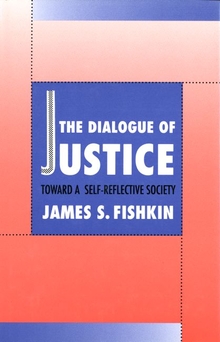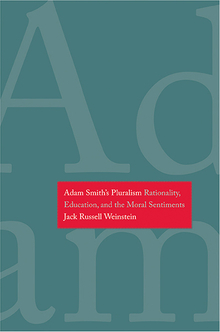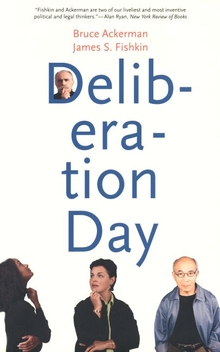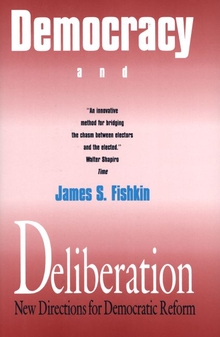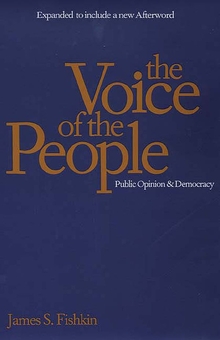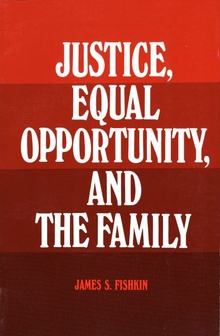The Dialogue of Justice
WARNING
You are viewing an older version of the Yalebooks website. Please visit out new website with more updated information and a better user experience: https://www.yalebooks.com
Toward a Self-Reflective Society
James S. Fishkin
Out of Print
Fishkin offers a comprehensive critique of liberal political theories that do not satisfy the requirements for a self-reflective society. He then explains his own theory of liberalism, showing that the freely self-examining society he advocates can provide the key to issues of political legitimacy and social justice. Fishkin proposes practical applications of his theory that would lead to more participatory democracy. Among these are deliberative opinion polls that would allow ordinary citizens to explore issues directly with candidates before elections, and vouchers that would allow them to organize representation for their interests. Fishkin examines a broad range of topics from the fresh perspective of a self-reflective society: utility and its limits, justice between generations, conflicting ideals of democracy, equal opportunity, the connections between theory and public policy, the notion of moral progress, and the bases for political obligation. His book makes a new contribution to central debates in moral, political, and legal philosophy.
"A tour de force. A display of argumentative virtuosity of a high order. It is one of the many virtues of Fishkin's book that it should have raised liberal thought to such a high level of self-criticism that the limits of liberalism itself are thereby revealed."—John Gray, Fellow of Jesus College, Oxford
"This is Fishkin's best book—combining clarity and insight in rewarding measure. All in all, an important contribution to liberal thought."—Bruce A. Ackerman, Sterling Professor of Law and Political Science, Yale University
"Fishkin's writings combine analytic clarity, well-formed arguments, and judiciousness. The Dialogue of Justice entertains bold new ideas, but it is at the same time eminently sensible. Instead of basing obligation on legitimacy, Fishkin bases legitimacy on obligation. Instead of seeking absolutes, he settles for a self-reflective society. The book is thought-provoking from beginning to end."—Giovanni Sartori, Albert Schweitzer Professor of the Humanities, Columbia University
"This book makes significant contributions to an important area that interests many people: what liberalism is all about, what makes it legitimate, what central norms should govern its institutions, and what its fundamental goals should be. It is Fishkin's most comprehensive and ambitious effort to date."—Thomas A. Spragens, Jr., Professor of Political Science, Duke University
"Under what conditions are political decisions worthy of obedience by citizens? James Fishkin addresses this central problem in political theory and develops in response the notion of a 'self-reflective' democracy. The idea is a good one, and Fishkin has interesting suggestions about the institutional mechanisms that could contribute to its attainment. The book as a whole shows how the work of political philosophers over the past twenty years can be brought to bear on pressing contemporary concerns about the health of our political system."—Brian Barry, Professor of Political Science, London School of Economics and Political Science
"A readable and stimulating approach to liberalism. . . . Fishkin's approach . . . is both interesting and powerful and displays the immense fruitfulness of general and metalevel argument. . . . Readable, interesting, and very thought-provoking."—Jeremy Schearmur, American Political Science Review
"[A] perceptive, closely argued and thought-provoking book."—Bhikhu Parekh, Political Studies
"What evolves from Fishkin's clear, systematic, and precise argument is as much a theory of authority, legitimacy, and democracy as it is a theory of justice."—Clarke E. Cochran, Journal of Politics
Publication Date: January 13, 1993

